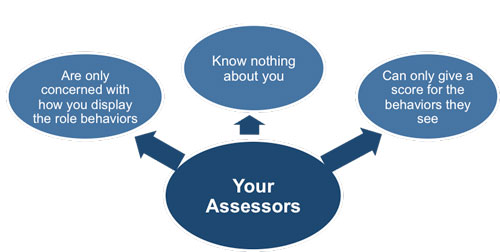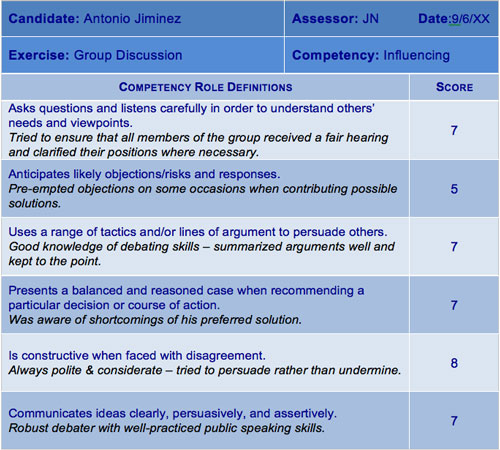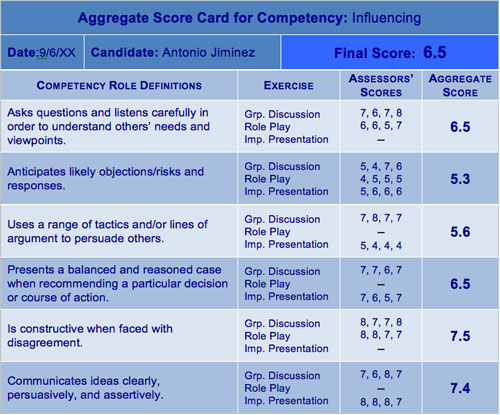What Assessors are Looking For
These are the people you have to convince that you have all of the role's competencies and can use them at the appropriate level. The only way this can be done is by you 'showing' them these abilities in each and every exercise that makes up your management assessment.
 |
In everything you do you must remember three things about your assessors. Firstly, they know nothing about you, so you have to show them who you are and what you can do. Secondly, they are only concerned with how you demonstrate the behaviors detailed on the scorecard. Thirdly, they can only give you a mark for the behaviors they see demonstrated, because assumptions cannot be validated or recorded.
Your assessors can vary depending on whether the assessment is for internal development or part of the recruitment process. In the former, the assessors will usually be people from at least one level of management above that of the role. They will have clear expectations of the type of person they envisage performing the role, especially if it has a direct impact on their own performance.
When the assessment forms part of the recruitment process, the assessors are likely to be a mixture of HR professionals and the organization's senior management. They will have the necessary skills to observe, classify, and record the role behaviors detailed on the scorecard. These will have been identified from the role description and specification, ensuring that assessors are consistent in the way they mark individuals.
The following scorecards will give you an appreciation of how your assessor will mark your performance for each exercise and how it relates to the competencies of the role.
In these examples the scoring goes from 1-10 with 1 being poor or unsatisfactory and 10 being totally capable and suited to role.
 |
The first sample scorecard shows you how an individual was marked for his performance in the group discussion exercise for the competency 'influencing.' The assessor's notes are shown in black italics.
The second sample shows the individual's aggregate scorecard for the competency 'influencing' for three exercises - group discussion, role play, and an impromptu presentation.
 |
The final score for an individual will be the average of all of the assessors' exercise scores. Once all individuals have completed an exercise, the assessors will discuss what they have observed and agree a final score for each person. These discussions ensure that each person is judged in a fair and equitable manner and these notes provide the evidence for that decision. These notes can also be used to give feedback to individuals if necessary.
You may also be interested in:
Management Assessment | Assessment Exercises and Format | What Assessors are Looking For | Initial Preparation for a Management Assessment | Detailed Preparation for a Management Assessment | Professional Development and Assessment.


